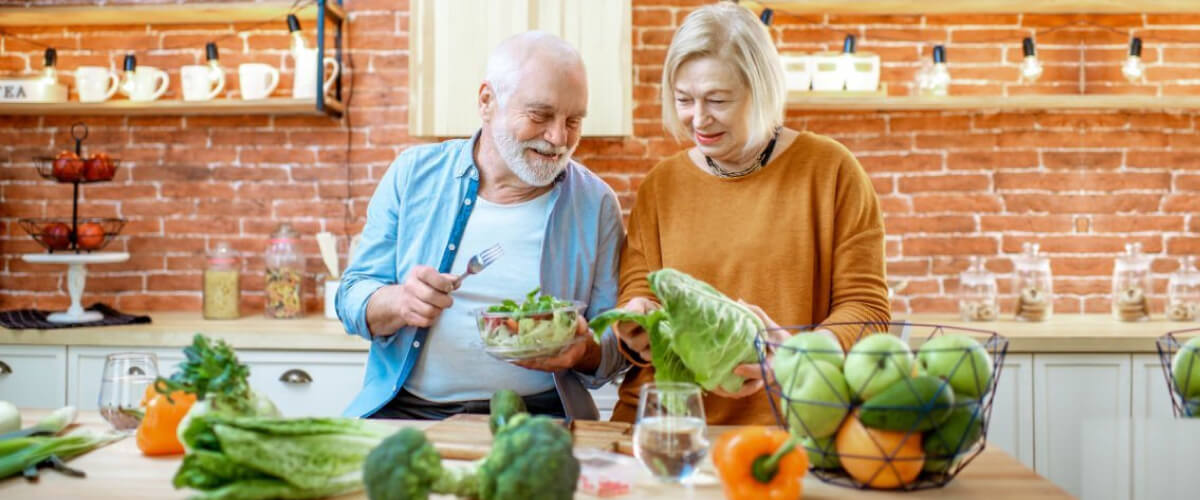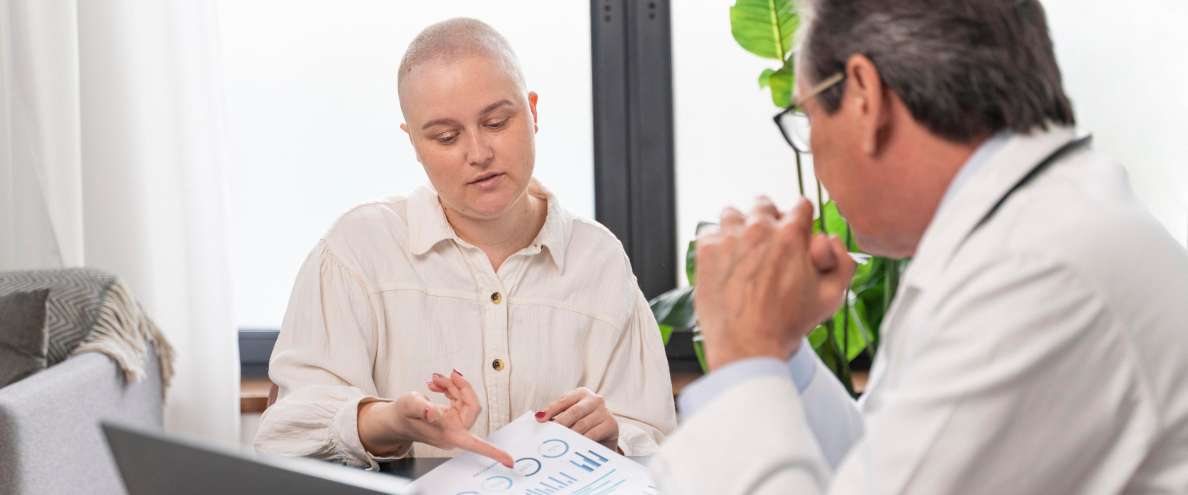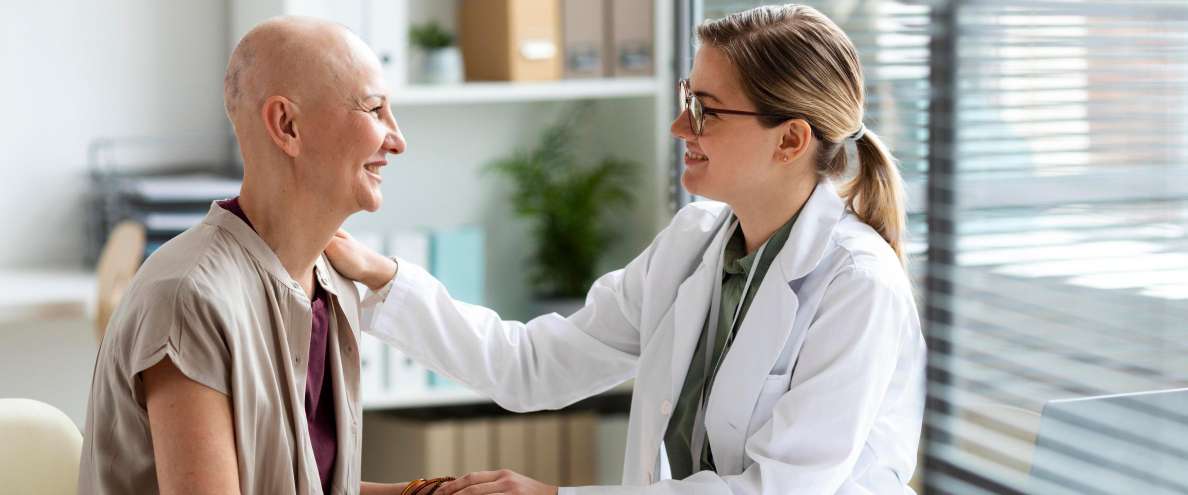By adopting a proactive approach and making positive lifestyle changes, seniors can take charge of their health and work towards preventing this life-altering disease.
Symptoms of Cancer:
Recognizing the early warning signs of cancer is crucial for timely intervention and improved prognosis. A staggering 9 in 10 of all diagnosed cancer cases annually are expected to occur in Canadians aged 50 years and older. Seniors should remain vigilant and be aware of potential symptoms such as:
- Significant weight loss
- Persistent fatigue
- Changes in the skin color
- Blood in the urine
Promptly discussing any concerns with a healthcare professional can lead to early detection, making a significant difference in treatment outcomes.
Tips and Tricks to Lower Cancer Risk:
Age and genetics play a significant role in cancer risk for seniors. As we age, our bodies are more susceptible to cellular changes that can cause cancer. Additionally, having a family history of cancer can increase the likelihood of inheriting certain genetic mutations linked to cancer. It is also important to consider how our lifestyle habits affect us. Smoking, excessive alcohol consumption, poor diet, lack of physical activity, and exposure to environmental pollutants and radiation are all factors that are associated with an increased risk of cancer.
1. Nutrition and Hydration:
Opting for a predominantly plant-based diet rich in fruits, vegetables, whole grains, and lean proteins can provide essential nutrients, antioxidants, and fiber that help maintain a healthy immune system and fight cancer cells. A study published in 2021 found that eating three servings of non-starchy vegetables and two servings of fruit daily reduced the risk of cancer death by 10%.

Reducing the consumption of processed and red meats can also contribute to a lower risk of certain cancers. Furthermore, limiting alcohol intake and ensuring adequate hydration by drinking plenty of water are simple yet effective steps.
2. Quit Smoking:
For seniors who smoke, quitting is paramount. Smoking harms nearly every organ in the body and dramatically increases cancer risk. Whether it’s through counseling, medication, or support groups, there are various resources available to assist in the quitting process.
Additionally, it is equally crucial for seniors to avoid secondhand smoke, as there are 250 harmful chemicals in tobacco smoke, with at least 69 known to cause various types of cancer. Not only is smoking dangerous for the individual, but breathing in secondhand smoke can also heighten the risk of cancer and other health complications.
3. Regular Exercise:
Engaging in regular physical activity can boost overall health and lower the risk of cancer. Incorporating aerobic exercises such as
- Walking
- Swimming
- Cycling
daily routines can improve cardiovascular health, strengthen the immune system, and reduce the risk of certain cancers. It’s important for seniors to find activities they enjoy making exercise a sustainable part of their lifestyle. Doing any amount of physical activity benefits health. But for the most benefit, strive for at least 150 minutes a week of moderate aerobic activity or 75 minutes a week of hard aerobic activity.

4. Get Regular Medical Check-ups:
Regular medical check-ups and cancer screenings are crucial for early detection and prevention. It’s important for seniors to regularly schedule appointments with their healthcare providers, including the recommended screenings for cancer, such as mammograms, colonoscopies, and prostate exams. Detecting cancer at an early stage significantly increases the likelihood of successful treatment and positive outcomes. So, make it a priority to keep up with routine check-ups and screenings to prioritize your health and well-being.
Conclusion:
By implementing the above explained practical tips and tricks, Canadian seniors can actively reduce their risk of cancer. Adopting a nutritious diet, staying physically active, quitting smoking, scheduling regular medical check-ups, and taking protective measures are all essential in minimizing the chances of developing this debilitating disease. Remember, recognizing early warning signs and discussing any concerns with healthcare providers is vital for early detection and treatment.
Want to learn more?
Reach us at wecare@considracare.com, or call us at 1-855-410-7971, and we will be happy to assist. Discover more tips in our information booklets or on our resources page.
FAQs:
1. What are the early warning signs of cancer?
Symptoms may include weight loss, fatigue, changes in skin color, and blood in the urine.
2. How can seniors lower their risk of cancer?
Adopting a healthy lifestyle, including a plant-based diet, quitting smoking, regular exercise, and medical check-ups.
3. What is the role of genetics in cancer risk for seniors?
Age and genetics play a significant role. Family history of cancer can increase the likelihood of inheriting certain genetic mutations.
4. What diet changes can help reduce cancer risk?
A predominantly plant-based diet rich in fruits, vegetables, whole grains, and lean proteins. Limit processed and red meats.
5. Why are regular medical check-ups important for cancer prevention?
Regular check-ups and screenings such as mammograms, colonoscopies, and prostate exams help with early detection and treatment.

